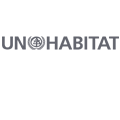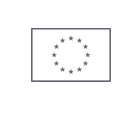Afghanistan

Photo: UNEP- Jon Coe
Decades of conflict and instability have had a devastating impact on Afghanistan's people, economy and environment. While international attention focuses on the on-going insurgency and conflict between the Afghan national security forces supported by international military forces and a disparate group of anti-government armed groups, at any given time there are numerous conflicts happening at different scales and intensities. Disputes over the management of natural resources such as land, water, timber, minerals and drugs underlie and drive many of these conflicts and often serve to exacerbate existing ethnic, political and regional divisions.
Natural resources are the source of numerous fracture lines in Afghanistan and the wider region. The division of water at local and transboundary levels, disputes over land ownership, the regional drugs trade, and the illegal smuggling of high value timber already generate tension and conflict. Recent investments in mineral and hydrocarbon extraction, if not managed carefully, could generate new problems.
The UN Country Team in Afghanistan requested the Partnership to investigate the ways in which the management of land, water, minerals, forests and drugs are linked to instability and insecurity in Afghanistan. The United Nations Environment Programme led the process with the advice and support of other agencies, funds and programmes operating in Afghanistan. The report identifies ways the international community, in particular UN agencies, can develop and implement programmes that maximize the peacebuilding opportunities that come from better natural resource management. Second it aims to encourage the international community to introduce safeguards in their existing projects and plans to ensure they do not inadvertently exacerbate existing conflicts. This report draws its raw material from extensive consultations with Afghan and international experts in Afghanistan and elsewhere, supplemented by desk-based literature review on natural resource management in Afghanistan and ten years of UNEP's experience in supporting environmental protection and natural resource management in-country.
The report also produced a map and guidance chart illustrating some of the ways natural resource management impact peacebuilding in Afghanistan. The report was officially launched in Kabul on 24 June 2013. 28 agencies, funds and programmes of the UN, civil society, govenrment representatives and international partners attended the event.
Following the launch of the report, a training workshop, drawing on the EU-UN training materials and the report, was delivered to the United Nations Country Team, the EU Delegation and the government with the objective to develop project proposals in 2014 for each thematic area and implement capacity development programmes.










